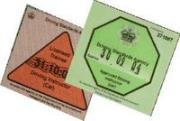I’m not sure if it will achieve anything, but at least it is trying. Here’s the full release:
PRESS RELEASE: TOP TV & RADIO STARS SUPPORT A NEW PARENT CAMPAIGN TO KEEP YOUNG DRIVERS SAFE
For Immediate Release
On 3rd February 2011, Phillip Schofield, Gethin Jones, Fearne Cotton, Natalie Pinkham, Gabby Logan and Ben Collins (ex Stig) will launch the RoadSafe¹ for Parents Campaign. The campaign includes the a2om² novice driver software (Drive iQ), now free to every young driver in the UK and the free download guide for parents³ “Is your child learning to drive? Everything you will need and want to know”.
In 2009, 45,701 drivers aged 17-24 were involved in crashes reported to the police4. More than half were casualties, and of those, 564 died5. That is more than 10 every week.
The Campaign in a nutshell; “together we can make common sense, common practice”
- If you drive badly, so will your kids.
- You need a good curriculum to learn anything properly.
- Great teachers inspire great students.
- Did you know you could lose your home by driving uninsured?
- Good driver, bad car – that doesn’t make sense!
- The road belongs to us all.
- Things have changed a little over the last 30 years…?!
* * * * * * * * *
Phillip Schofield says “Around 2,000 young people are killed or injured every month on UK roads. Better planning and education for young drivers will save lives, and better information for parents is key to keeping our children safe. As a TV presenter, you research, script, rehearse and plan, in short, you leave nothing to chance. It should be the same when learning to drive, better planning and education for young drivers will save lives, and better information for parents is key to keeping our children safe. That’s why I am supporting RoadSafe for Parents”
Gethin Jones says “My work on ‘Police Camera Action’ opened my eyes to the potential dangers of poor driving and the totally devastating consequences to the lives of those involved in, or affected by crashes. A car is a loaded weapon and proper respect needs to be given to it. When young people first take to the road, they are especially vulnerable and it’s essential at this time that they receive thorough preparation and training. If you are a parent or guardian of a young driver, please take 10 minutes to read through the RoadSafe for Parents website and the parent guide, it really could make all the difference.”
Gabby Logan says “One in five novice drivers crash within the first six months of driving. In 2008, young drivers accounted for 53,000 injury accidents, 4,600 were very serious and 750 resulted in death. More needs to be done, and thanks to the RoadSafe for Parents campaign, there is now more information for parents, free software for learners that addresses their attitude and behaviour and how it will affect their driving, plus lots of advice on how to do more to keep young drivers safe”
Fearne Cotton says “There is nothing like driving with a huge tune belting out of the stereo, but adding this type of distraction when you’re a newly qualified driver has its risks. Over 200 people die on the UK roads every month and over 30% of them are young drivers. It’s so important to learn to drive properly and the RoadSafe for Parents campaign is pushing for young drivers to be taught as part of the school curriculum. Better planning and education for young drivers will definitely save lives”
Natalie Pinkham says “The RoadSafe for Parents campaign is pushing for driving to be taught as part of the school curriculum and create an audited trail that insurance companies can analyse and, in turn, reward the young driver for their dedication – just like GCSE coursework. Most young people feel pretty invincible when they start to drive, yet the reality is that thousands of families and their friends are devastated every month by news that someone they know has been hurt or killed in a car crash. I wholeheartedly support this campaign, it’s a great initiative”
Ben Collins – ex Stig says “Learning to handle any sort of car takes plenty of time and practice. The key is always to operate within your personal limits. Driving always carries an element of risk, even for drivers who know what they are doing, although the consequences of ignorance are far greater. That’s why I am supporting the RoadSafe for Parents campaign”
* * * * * * * * *
The RoadSafe for Parents Campaign offers solutions and information for parents worried about the dangers and costs of their teenagers learning to drive. The campaign philosophy is to highlight the key role parents have to play in making their teenagers the best drivers. There is increasing evidence that social factors have an impact on young drivers?, and that parental involvement is significant.
RoadSafe Director, Adrian Walsh suggests: “Parents should set a good example and try to ensure that they put their young drivers in the safest car affordable and use only fully qualified driving instructors when their child is learning to drive.”
Edmund King, President of the AA says: “Most parents under-estimate the risks their teenagers may be taking as drivers or indeed as passengers. The tragic reality is that they are much more likely to be killed or seriously hurt in a car crash than in a knife fight or drug overdose. The key to minimising these risks is to foster safer behaviour and attitudes towards driving. Attitudes begin to form long before your first driving lesson and continue to be shaped after you pass your test. Together we must work with young people throughout this journey to sow the seeds of a safe driving future.”
Dr John Heyworth, President of the College of Emergency Medicine says: “Everyday doctors in Emergency Departments throughout the UK care for the victims of road traffic accidents, often young adults with horrendous injuries which may threaten life or cause lifelong disability. Many of these injuries could be avoided by better education regarding the risks associated with driving, particularly at high speed. We are therefore pleased to support this campaign to reduce the terrible toll of wrecked young lives and improve road safety in all age groups”
Ashton West, CEO of the Motor Insurers’ Bureau (MIB) says: “The excitement and anticipated freedom of taking to the road as a newly qualified driver can often overshadow the responsibilities that come with it. The RoadSafe for Parents campaign is to be welcomed in helping parents and young people understand that one of the most important decisions they face is making sure that adequate motor insurance is in place. Not only is it a legal requirement but also a means of being able to take responsibility for any damage or injury that might be caused on the road in the event of an accident. The sad fact is that many of the claims handled by MIB are caused by young uninsured drivers and the costs of picking up the pieces are lasting and immense.”
Dr Lisa Dorn, Reader in Driver Behaviour, Cranfield University says: “Despite many improvements in vehicle safety systems and road infrastructure over several decades, the human element continues to be the major factor behind road accidents. There is little evidence that passing a driving test means novice drivers are safe, indeed they are more at risk of crash involvement post-test than at any other time in their driving careers. In line with the evidence base, a2om have designed Drive iQ to supplement the learning to drive process with a greater focus on hazard awareness training using online highly interactive and engaging modules. Drive iQ improves the ability to observe relevant information and judge traffic situations and considers the attitudinal and behavioural factors associated with risk.”
Find more information at www.roadsafeforparents.com
Contact Information
Adrian Walsh – RoadSafe: 07887 552 708 / awalsh@roadsafe.com
Sarah Rowley – The Daisy Chain Network: 07894 199 369 / sarah@thedaisychain.org.uk
Notes to the Editor
1. RoadSafe is a leading forum for promoting and devising solutions to road safety problems. The not-for-profit partnership brings together the motor industry and related companies, traffic engineers, police and road safety professionals. Its mission is to reduce road deaths and injuries by sharing knowledge and encouraging innovation. www.roadsafe.com
2. a2om (pronounced “atom”) began over six years ago when the Founders noticed that their sons’ schools had no position on driving, yet this was by far the biggest danger they faced. Over 5 million pounds of investment later, the a2om e-learning platform for young drivers was created – Drive iQ. This would go on to underpin the most comprehensive driver education programme in the UK – Drive iQ PRO. In addition to supporting learner drivers, a2om also work with Police Forces and large organisations such as Unilever, The AA and The MoD. a2om believe that quality driver education should be made available to everyone, especially new drivers. Insufficient driver education has added to the huge number of young lives lost on the roads every year. Through the Drive iQ PRO course, drivers are better prepared for life on the road. Co- founder and CEO, Nick Rowley, illustrates how the course is different: “Inexperience = danger. The idea behind Drive iQ PRO is to help young drivers build up an experience base by using the best online software and, through self-awareness and reflective learning, help bridge the gap between accompanied lessons and solo driving.” www.a2om.com
3. The Daisy Chain Network Ltd (DCN) is a network for mothers, fathers, grandparents, teachers… in fact anyone interested in protecting young life out on 21st century roads. The DCN invites you to: Spread the word, earn an income and most of all, share in their BIG VISION – Together let’s rid the UK of needless young road deaths and try to save hundreds of young lives every year. The parent guide includes: Applying for a provisional licence / choosing the right Driving Instructor / booking theory & practical tests / what the industry experts say / doing more than the standard test / a quick guide to young driver insurance and buying a first car. The guide is the result of The Daisy Chain Network’s collaboration with key industry leaders and supporters of the campaign: Cranfield University (leaders in driver behaviour research), the Motor Insurers’ Bureau, the Institute of Advanced Motorists, RoadSafe, The College of Emergency Medicine and the AA. The guide is also in line with the UN Decade of Action for Road Safety. Download now at www.thedaisychain.org.uk
4. Department for Transport (2010) Reported Road Casualty Reports Great Britain 2009, Table 38a.
5. Department for Transport (2010) Reported Road Casualty Reports Great Britain 2009, Table 1K.
6. Other useful information: 600,000 people under 25 gain a driving licence each year. One in five of those young drivers will crash within their first six months of driving (source: Department for Transport (2008) Cohort II: A Study of Learner and New Drivers. Volume 1 – Main Report. Road Safety Research Report 81. London). Road Crashes cost Britain £33 billion every year. (Source: Department for Transport (2010) Reported Road Casualty Reports Great Britain 2009).
My concern is that it doesn’t appear to involve the DSA – and knowing how a2om started out, this is primarily a profit-making business which not everyone (indeed, often the very people who need it) cannot afford.
 Well done to YK, who passed this afternoon with just 2 driver faults. It’s such a shame that he is a Chelsea supporter, though!
Well done to YK, who passed this afternoon with just 2 driver faults. It’s such a shame that he is a Chelsea supporter, though! They’re a “supergroup” comprising Glenn Hughes (Deep Purple, Black Sabbath), Joe Bonamassa, Jason Bonham (Led Zeppelin, Foreigner), and Derek Sherinian (Dream Theater, Billy Idol, Alice Cooper).
They’re a “supergroup” comprising Glenn Hughes (Deep Purple, Black Sabbath), Joe Bonamassa, Jason Bonham (Led Zeppelin, Foreigner), and Derek Sherinian (Dream Theater, Billy Idol, Alice Cooper). I saw this on the news last night – Gary Moore, formerly guitarist with Thin Lizzy and superb blues/rock guitarist in his own right, has died at the age of 58.
I saw this on the news last night – Gary Moore, formerly guitarist with Thin Lizzy and superb blues/rock guitarist in his own right, has died at the age of 58. I hired my car out to a PDI today. He was making his second attempt at Part 3, having got 2-2 on his first.
I hired my car out to a PDI today. He was making his second attempt at Part 3, having got 2-2 on his first. A reader has furnished me with some information on the BSM takeover by Acromas. I’ve been getting a lot of hits on “AA buys BSM”.
A reader has furnished me with some information on the BSM takeover by Acromas. I’ve been getting a lot of hits on “AA buys BSM”.